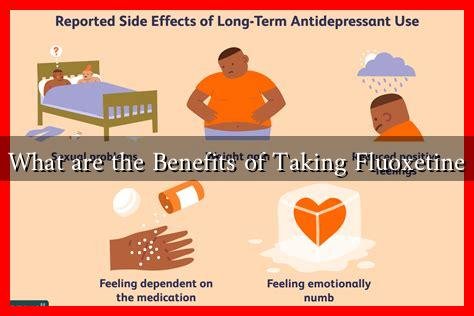-
Table of Contents
What are the Benefits of Taking Fluoxetine?
Fluoxetine, commonly known by its brand name Prozac, is a selective serotonin reuptake inhibitor (SSRI) that is widely prescribed for various mental health conditions. Since its introduction in the late 1980s, fluoxetine has become one of the most recognized and utilized antidepressants globally. This article explores the numerous benefits of taking fluoxetine, supported by research, statistics, and real-world examples.
Understanding Fluoxetine
Fluoxetine works by increasing the levels of serotonin in the brain, a neurotransmitter that plays a crucial role in mood regulation. By preventing the reabsorption of serotonin, fluoxetine helps to alleviate symptoms of depression and anxiety. It is primarily prescribed for:
- Major depressive disorder
- Obsessive-compulsive disorder (OCD)
- Bulimia nervosa
- Panic disorder
- Premenstrual dysphoric disorder (PMDD)
Key Benefits of Fluoxetine
1. Effective Treatment for Depression
Fluoxetine has been shown to be effective in treating major depressive disorder. According to a study published in the Journal of Clinical Psychiatry, approximately 60-70% of patients experience significant improvement in their depressive symptoms after taking fluoxetine for several weeks. This effectiveness is crucial for individuals who struggle with persistent feelings of sadness and hopelessness.
2. Reduction of Anxiety Symptoms
In addition to treating depression, fluoxetine is also effective in managing anxiety disorders. Research indicates that fluoxetine can significantly reduce symptoms of generalized anxiety disorder (GAD) and social anxiety disorder (SAD). A meta-analysis published in the American Journal of Psychiatry found that SSRIs, including fluoxetine, are among the first-line treatments for anxiety disorders.
3. Long-Term Benefits
Fluoxetine is not only effective in the short term but also offers long-term benefits. Many patients who continue their treatment for an extended period report sustained improvements in their mental health. A longitudinal study found that patients who remained on fluoxetine for over a year experienced a lower risk of relapse compared to those who discontinued treatment prematurely.
4. Improved Quality of Life
By alleviating symptoms of depression and anxiety, fluoxetine can significantly enhance an individual’s quality of life. Patients often report improvements in their relationships, work performance, and overall well-being. A survey conducted by the National Alliance on Mental Illness (NAMI) revealed that 75% of respondents who took fluoxetine reported feeling more capable of managing daily tasks and responsibilities.
5. Minimal Side Effects
Compared to older antidepressants, fluoxetine generally has a more favorable side effect profile. While some individuals may experience side effects such as nausea, insomnia, or sexual dysfunction, these are often mild and manageable. According to the FDA, the majority of patients tolerate fluoxetine well, making it a preferred choice among healthcare providers.
Case Studies and Real-World Examples
Numerous case studies highlight the positive impact of fluoxetine on individuals’ lives. For instance, a 35-year-old woman suffering from severe depression and anxiety reported a significant turnaround in her mental health after starting fluoxetine. Within three months, she was able to return to work and engage in social activities she had previously avoided.
Another case involved a teenager diagnosed with OCD. After being prescribed fluoxetine, the patient experienced a marked reduction in compulsive behaviors, allowing them to focus on school and friendships without the overwhelming burden of their condition.
Conclusion
Fluoxetine offers a range of benefits for individuals struggling with depression, anxiety, and other mental health disorders. Its effectiveness, long-term benefits, and relatively mild side effects make it a valuable option for many patients. As with any medication, it is essential to consult with a healthcare provider to determine the best treatment plan tailored to individual needs. Overall, fluoxetine has proven to be a lifeline for many, helping them regain control over their lives and improve their overall quality of life.




